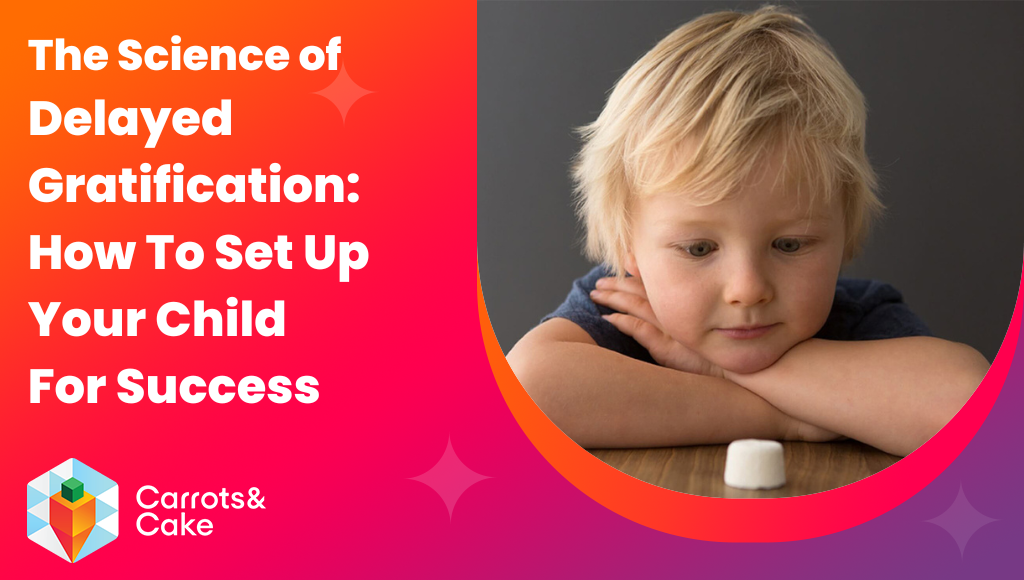


Do you practice delayed gratification in your daily life?
What about your family? Does your partner practice delayed gratification?
Do your children understand the concept of delayed gratification and how it can help them?
If the answer is no, read this article to learn about how delayed gratification can benefit your family.
The capacity to resist the temptation of an immediate reward and instead wait for a later, more valuable reward is known as delayed gratification.
It is an essential life skill that can support children in academic, professional, and personal aspects.

One of the most well-known — and delicious — studies on delayed gratification is the marshmallow experiment.
Preschoolers were given a choice between eating one marshmallow now or two marshmallows later.
Researchers discovered that the children who waited and got two marshmallows tended to have better life outcomes in adulthood, including higher SAT scores and lower levels of obesity.
Delayed gratification is essential for a variety of reasons.
It can improve academic success. According to studies, children who can delay gratification perform better on tests and in school. They also have a higher likelihood of finishing college.

Delaying gratification increases one's chances of getting higher-paying jobs and enjoying successful careers in general. Delaying gratification helps people maintain healthier relationships, feel better about themselves, and succeed in their personal goals.
Educating your child about the value of delayed gratification can help set them up for success. It is an essential life skill that will benefit them in their studies, careers, and personal relationships.

The relationship between self-regulation and success in life is supported by research. The capacity to delay gratification is associated with improved academic performance, a decline in delinquency, and improved physical health.
Self-regulation is the foundation of delayed gratification. Self-regulation is the capacity to manage one's feelings, ideas, and actions. It enables us to accomplish our objectives and lead fulfilling lives.
Goal setting and impulse control are the two fundamental parts of self-regulation. The capacity to withstand temptation and postpone gratification is known as impulse control. The capacity to set and achieve goals is known as goal setting.
Helping your child practice it is key.
How to help your child through their journey:
Look for these signs to determine if your child has mastered it:
We recently had the opportunity to converse with Dr. Gwenyth Jackaway to delve into the profound impacts of instilling the practice of delayed gratification in children. Here's what she illuminated on the subject:
"Numerous studies demonstrate the importance of the ability to postpone rewards. It is linked to higher levels of self-control, self-confidence, and diligence. The ability to work on a challenging task while waiting for an enterprise helps develop grit and resilience to key psychological principles that are essential for academic success. As adults, we've learned we must persevere through the tedious aspects of our work before we can relax and watch our favorite TV show. This is a habit that requires self-discipline, self-control, and the ability to focus on the means in order to reach the end."

There are many ways to celebrate your child's success:
Celebrating your child's success is an important part of parenting. It helps them feel appreciated and motivated to continue using their new skills. Find a way to celebrate your child's success in mastering delayed gratification and watch them thrive in life!
Also Read: The Science Behind Carrots&Cake!







